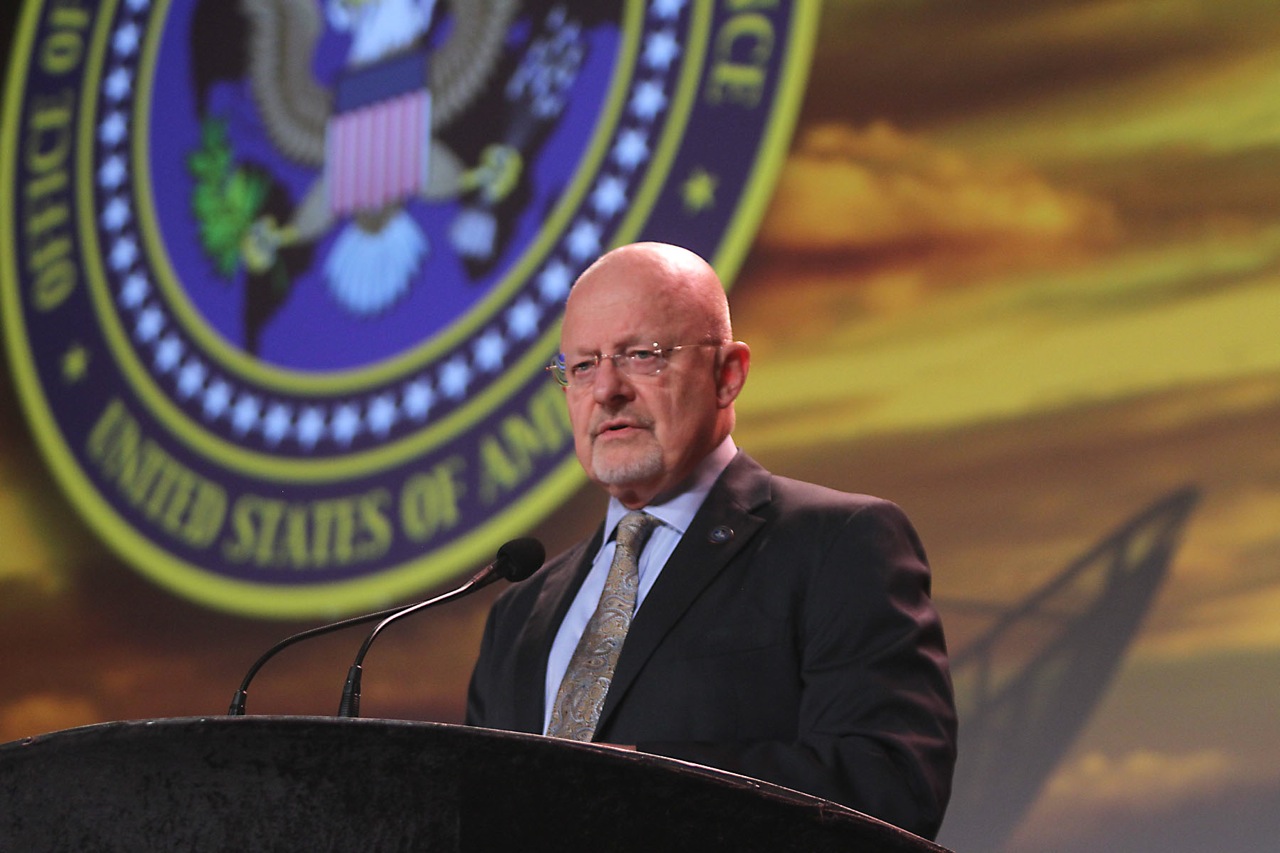
The Director of National Intelligence said his confidence is even stronger now than it was in October when he and the Secretary of Homeland Security said the highest levels of the Russian government was behind the hacking, fake news and propaganda intrusions in the presidential campaign.
President-elect Donald Trump has been dismissive of earlier intelligence community’s findings of Kremlin involvement in the election.
Testifying Thursday before the Senate Armed Services Committee, James Clapper said, “We will supply a motive” on why Russian President Vladimir Putin approved the moves when the report is released publicly next week. He said he wanted to “push the envelope” to ensure the public understands what the Kremlin was doing and why it was doing it.
President Barack Obama — who called for the report — is to be briefed on the findings Thursday and Trump Friday, so he and other witnesses at the hearing did not go into specifics of its content. Clapper and other intelligence community leaders will meet later with Congress.
Although Clapper said several times in answers to questions that all the activity did not change the outcome of the U.S. presidential election, he added even in the Cold War “I don’t think we have ever encountered” such a disinformation campaign. The campaign now includes cyber hacking, fake news and social media. Clapper did say that the intelligence community had no way of measuring the impact of all these Russian efforts on individual voters.
“This was a multi-faceted campaign. The hacking [of the Democratic National Committee and of Clinton campaign director John Podesta’s e-mails] was only one part of this.” Later Clapper added in answer to another question, RT — a Russian broadcast outlet available in the United States to the disinformation and propaganda campaign.
“They used all that,” he said.
“It is a grave concern.”
Whether these constitute an act of war, Clapper said it was “a very heavy call” to be made by policy makers, not the intelligence community.
As the hearing was ending, Marcel Lettre, under secretary of defense for intelligence, said what is different now is “a true intent to use propaganda” and “match that up with social media” to achieve a desired end, such as disrupting an election, undermining confidence in institutions or recruiting members for terrorist organizations.
As one counter to this kind of campaign, “we could use a USIA [United States Information Agency] on steroids,” Clapper said.
When asked whether Putin would know of these intrusions, Clapper said it was clear that “certainly none that is politically sensitive in another country” would have been attempted without his knowledge. “Russia has clearly assumed a more aggressive cyber posture,” he told the panel as the hearing began.
In his opening statement, Sen. John McCain, (R-Ariz.), said, “Every American should be alarmed by Russia’s attacks on our nation. There is no national security interest more vital to the United States of America than the ability to hold free and fair elections without foreign interference.”
Calling Moscow a “peer competitor” in this domain, Adm. Mike Rogers, head of Cyber Command and director of the National Security Agency, said, “Russia cyber groups have a history of hacking” into commercial and political activities in other nations, as it has done in the Baltic nations, Ukraine and may be doing in Germany and France which hold elections later this year.

He added that like Russia China, Iran, North Korea and international terrorist organizations are “not in any way backing away” from employing cyber in their operations.
Clapper emphasized the report does not call for specific actions to counter Russian cyber activities. He also distinguished between this kind of active effort to influence events and espionage which is passive collection of intelligence, something the United States does.
He warned against using cyber to counter cyber because the second and third order of effects of such an action would be unknown. Sanctions and other forms of response are options for policy makers to employ.
Sen. Lindsey Graham, (R-S.C.), said he was prepared to throw “a rock” at nations carrying out these kind of activities in the political process rather than “a pebble,” as he characterized the Obama’s administration’s response to Russia moves.

Clapper and Rogers said they gave no credibility to the work of Julian Assange of Wikileaks, who first published the Democratic National Committee e-mail traffic. Assange denied receiving information of the Democratic National Committee from Russian governmental sources in an interview this week with Sean Hannity on Fox News.
When asked by a number of senators from both parties about Trump’s comments about the intelligence community, Clapper said the there is a difference between “healthy skepticism” and “disparagement.” “The intelligence community is not perfect,” he said acknowledging that he was one of the authors of the 2003 report on Iraq’s possession of weapons of mass destruction. “We are prone to make errors” because its members are human. “I don’t think it gets credit” for the unheralded work it does in thwarting terrorist plots.
He also mentioned the wall of stars commemorating the dead at the CIA and a similar memorial at NSA as demonstrations of the lengths to which members of the intelligence community will take in defense of the nation.
“Public trust and confidence in the intelligence community [in providing apolitical analysis] is crucial” both in the United States and with its allies and partners. The intelligence community “is a learning organization.”
Rogers added, “I don’t want a situation where our workforce walks” because they believe their labors are not valued.
Clapper said he was prepared for any criticism of the report coming from the incoming administration. He added that he has not been consulted on any possible changes planned in the intelligence community, including the possible elimination of his position. His is a political appointment, subject to Senate confirmation. After working in intelligence as a military officer and political appointee for more than 50 years, he will leave office Jan. 20.
McCain has said he plans to hold additional hearings on cyber activities and Russia. Other Senate committee, including intelligence, are expected to take up the Russian role in the election.





